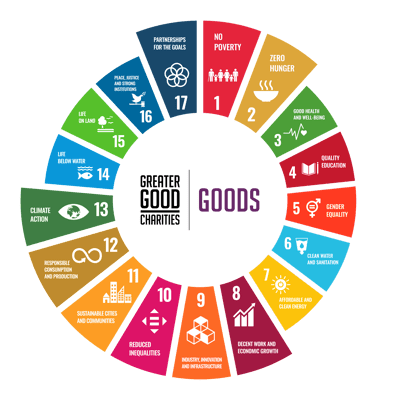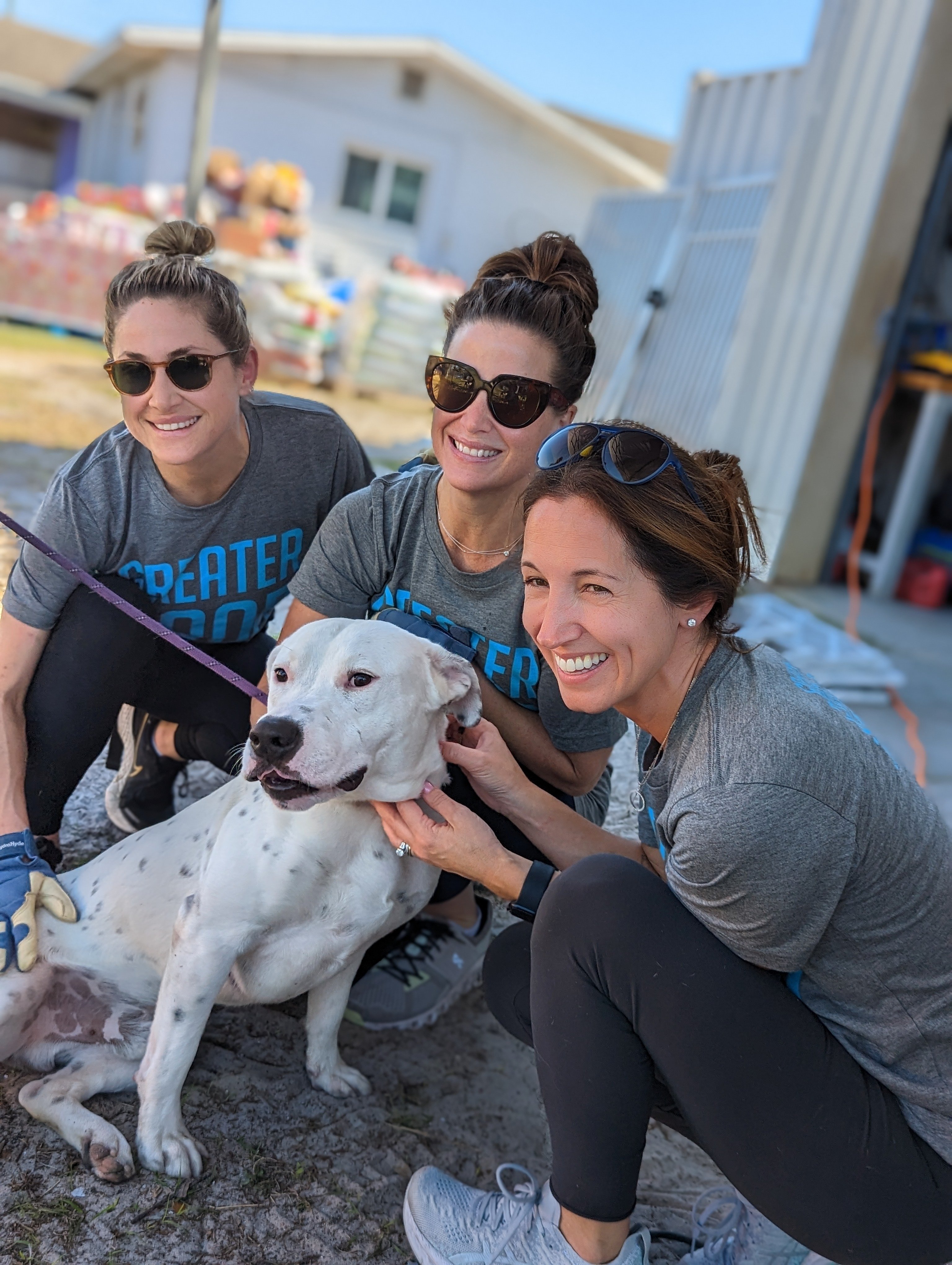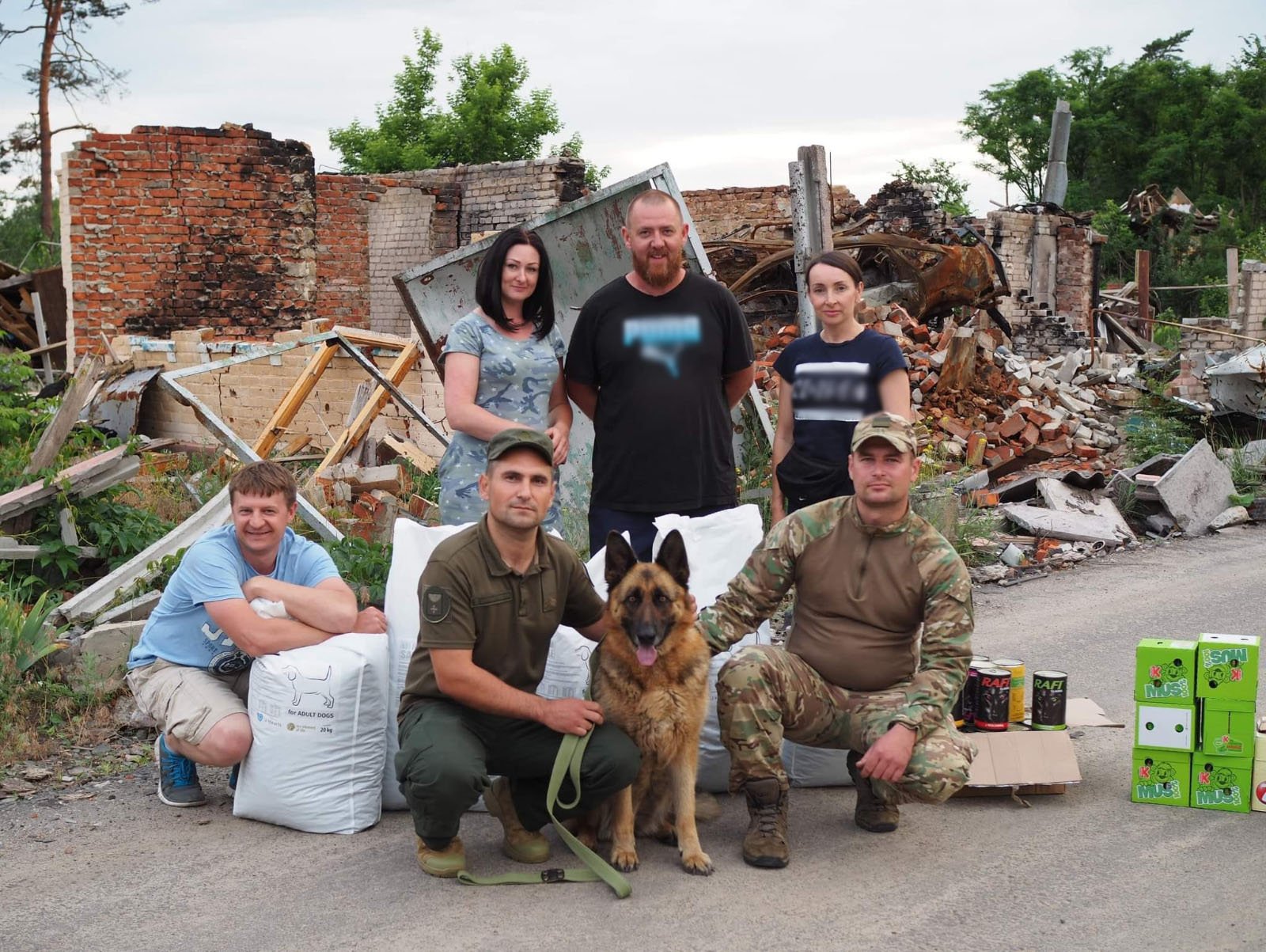Introducing Goods
Introducing Goods
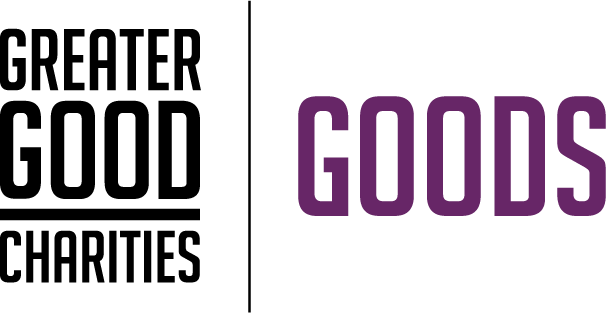
The GOODS Program has a holistic approach that helps the whole family, providing food and supplies for people and pets in need.
The increase in poverty, food insecurity, and domestic violence over the past several years has affected families, including their pets, resulting in a greater need for food and essential supplies across the globe for both people and pets alike.
GOODS sources and manages excess, re-branded, and short-dated food and supplies from donors including manufacturers, distributors, and retailers. GOODS then makes these products available to qualified and approved distribution groups (Ambassadors) who ensure they reach the organizations that need them (Recipients), including human services agencies, food banks, domestic violence organizations, and animal care and feeding groups under the Rescue Bank® umbrella.
The GOODS distribution network consists of thousands of charitable partners including animal welfare organizations, food banks, Veteran Affairs locations, and other qualified agencies.
The GOODS Program uses a sustainable hub and spoke model similar to a food bank. That is, the goods are donated, but freight, warehouse, and program costs are met by handling fees and donations.
Looking to donate product? Please click here.





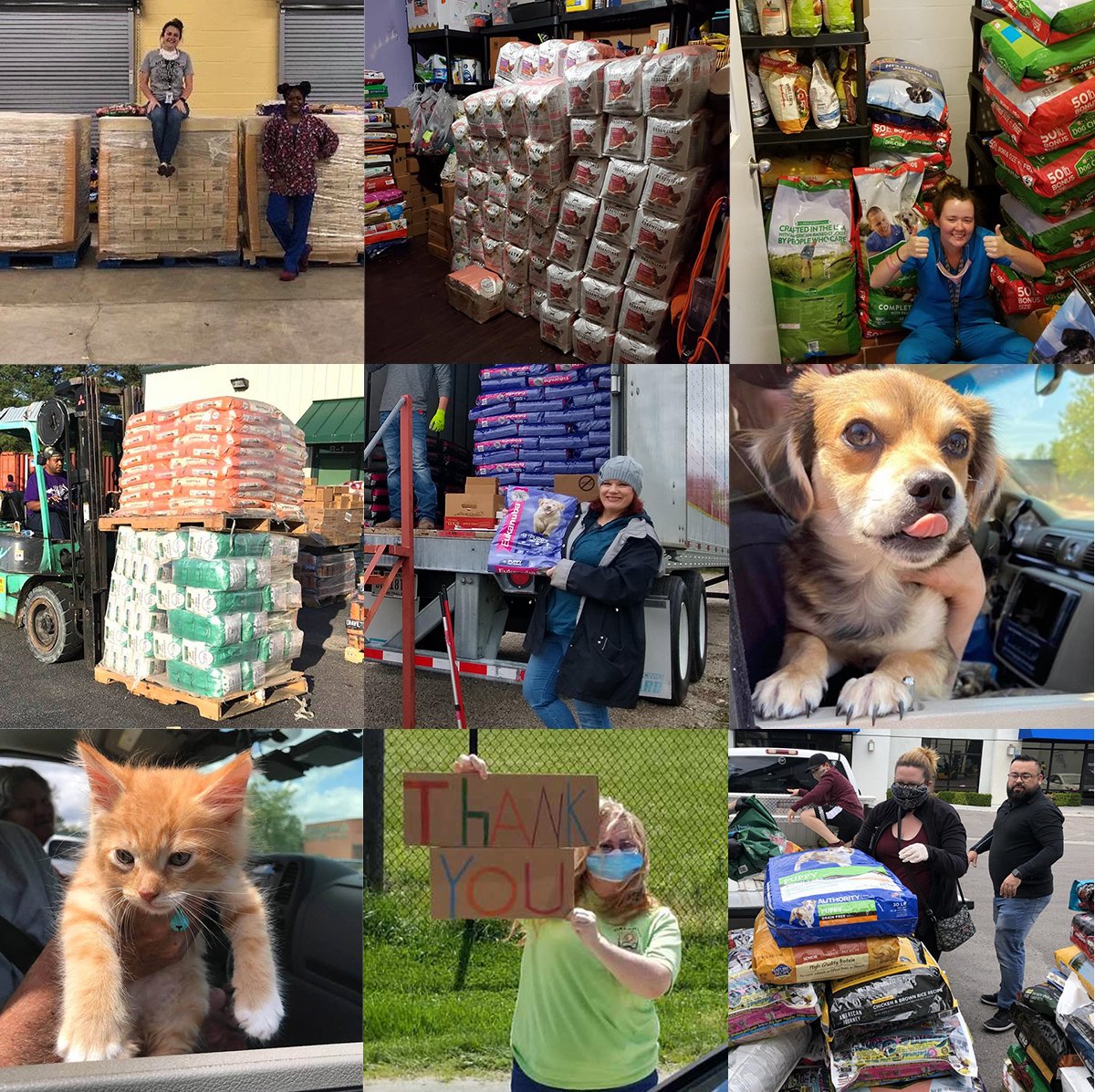
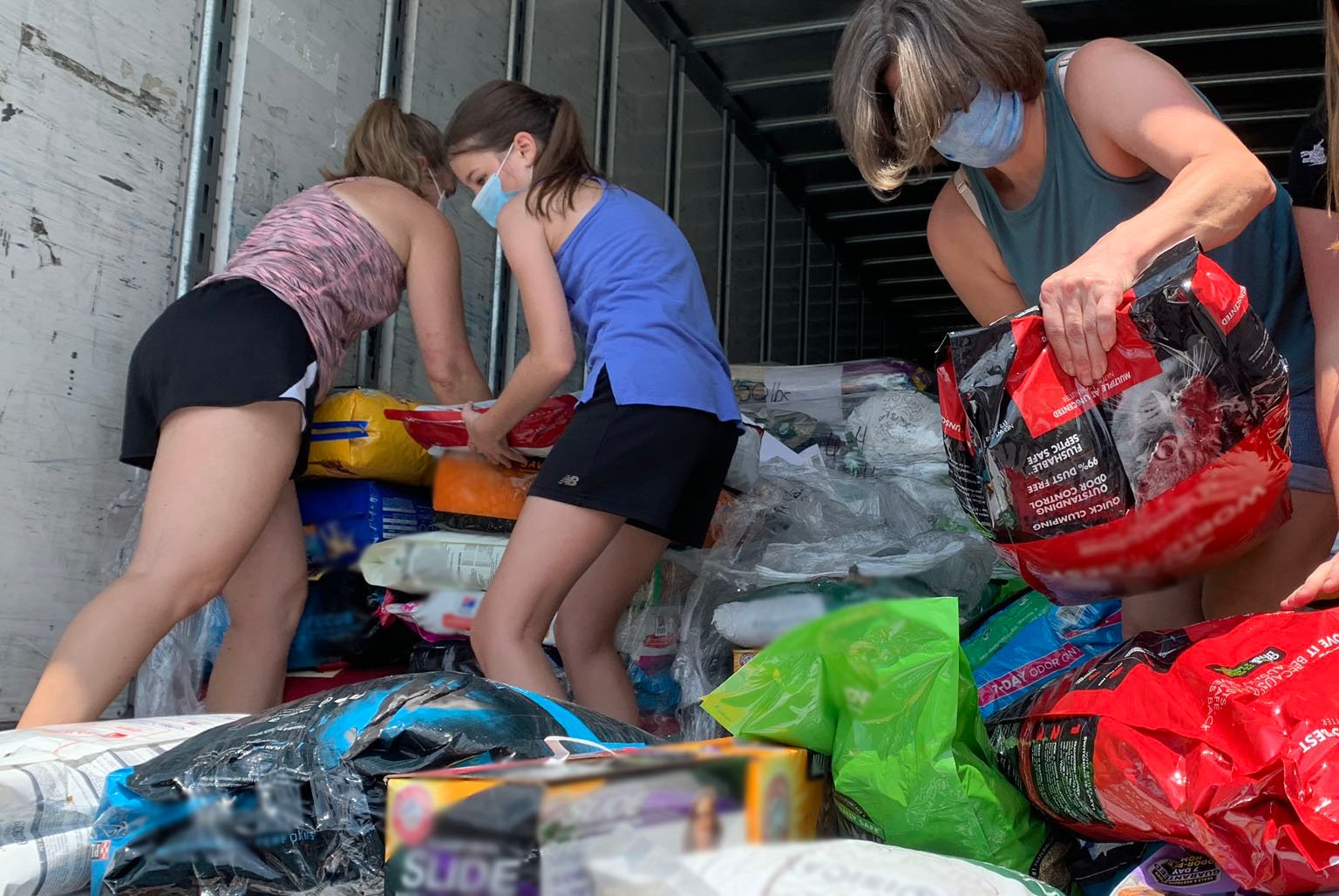
Keeping pets with their families and out of shelters is critical in times of crisis.
During the height of the COVID-19 pandemic, families accessing United Way of Miami's two food pantries were struggling to feed their four-legged family members, as well.
Greater Good Charities partnered with FoMA to provide the food bank with quality pet food. Helping families receive much-needed pet food lessened the stress and financial struggles of COVID-19.
Daniel F. attended the first mass Drive-Thru Emergency Pantry (DTEP) at the Rio Grande Valley Food Bank, funded by Greater Good Charities and 12 Tomatoes. Daniel’s family of five experienced a complete and total loss of food due to spoilage after being without power for three days. Impacted by job loss and then the Winter Storm, he said that although his family has fallen on tough times, he knows that things will get better. “This could happen to anyone, but I am thankful for this good help that the food bank and community are providing for us to help us get by and back on our feet.”
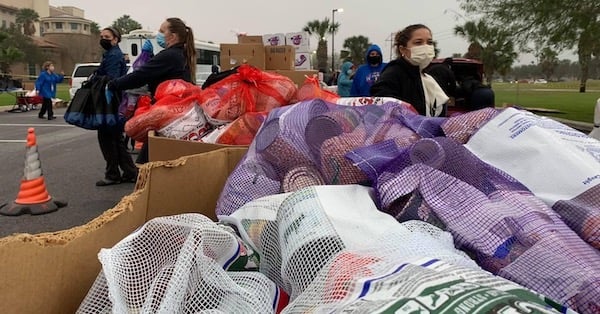
GOODS is a program of Greater Good Charities that distributes food, essential supplies, clothing, housewares, toys, and more to pets and people in need across the world.
Constituents of the GOODS Program include pets (homeless and owned), families facing economic hardships, unhoused populations, military veterans, domestic violence survivors, victims of disasters, and displaced persons (DPs) or internally displaced persons (IDPs)..
The increase in poverty, food insecurity, and domestic violence over the past several years has affected families including their pets, resulting in a greater need for food and essential supplies across the globe.
GOODS sources and manages excess, re-branded, and short-dated food and supplies from donors including manufacturers, distributors, and retailers. GOODS then makes these products available to qualified and approved distribution groups (Ambassadors) who ensure they reach the organizations that need them (Recipients).
The GOODS distribution network consists of thousands of charitable partners including animal welfare organizations, food banks, Veterans Affairs locations, and other qualified agencies.
The GOODS Program uses a sustainable hub and spoke model similar to a food bank. That is, the goods are donated, but freight, warehouse, and program costs are met by handling fees and donations.
Want to become a corporate partner with the GOODS Program? Download our PowerPoint below to learn how.
Please locate the Ambassador nearest to you HERE and apply directly on their website.
Our generous sponsors supply the goods! From the sponsor's perspective, the decision to donate product must consider brand integrity, opportunities to enhance goodwill, risk, and cost. The GOODS Program encompasses the whole process for receiving, tracking, and delivering donated product on a national scale.
The GOODS Program sponsors benefit from:
- An enhanced sustainable development program by putting slow-moving or short-dated inventory to good use in a way that has many social and environmental benefits
- One-call access to a nationwide reverse logistics network, reduced workload for your donation coordinators
- Recipient qualification through a detailed vetting process
- Recipient agreements that address FDA compliance, liability, and media rights issues
- Freight and regional distribution warehouse costs paid by The GOODS Program and its Ambassadors – you provide FOB at your facility, and we cover the rest
- More rapid distribution of large volumes for faster recovery of warehouse space
- Shipment tracking and recall notice capabilities
- Coordination with your corporate communications, publicity, advertising, and social media staff to maximize goodwill
- Partner donation process
Click here for other brand benefits, as well as examples of brand partnerships, campaigns and initiatives.
Contact by email at GOODS@greatergood.org
We typically need the following information:
- Product location and address, contact name, and phone number
- Product description(s), quantities, and ‘best by’ dates
- Confirmation that it is palletized and shrink-wrapped suitable for truck freight
- Transportation and storage specifics (dry, refrigerated, frozen)
- Reason for donation (code date issue, etc.)
- Schedule, including restricted days or hours at loading facility
- Fair Market Value of Donation
Make sure to check out our FAQ page for more information. If you still have questions, please email GOODS@greatergood.org.
Operating on the national food bank model, the GOODS Program depends on regional Ambassadors to distribute food and products in their community. We cannot complete our mission without the active support of our community-based Ambassadors.
The GOODS Program serves its Ambassadors by:
- Sourcing and negotiating for donated food and products
- Shipping products to the Ambassador's warehouse
- Collecting distribution data and reporting to sponsors
- Providing standard forms and training materials for Ambassadors
- Providing support for disasters and other emergencies
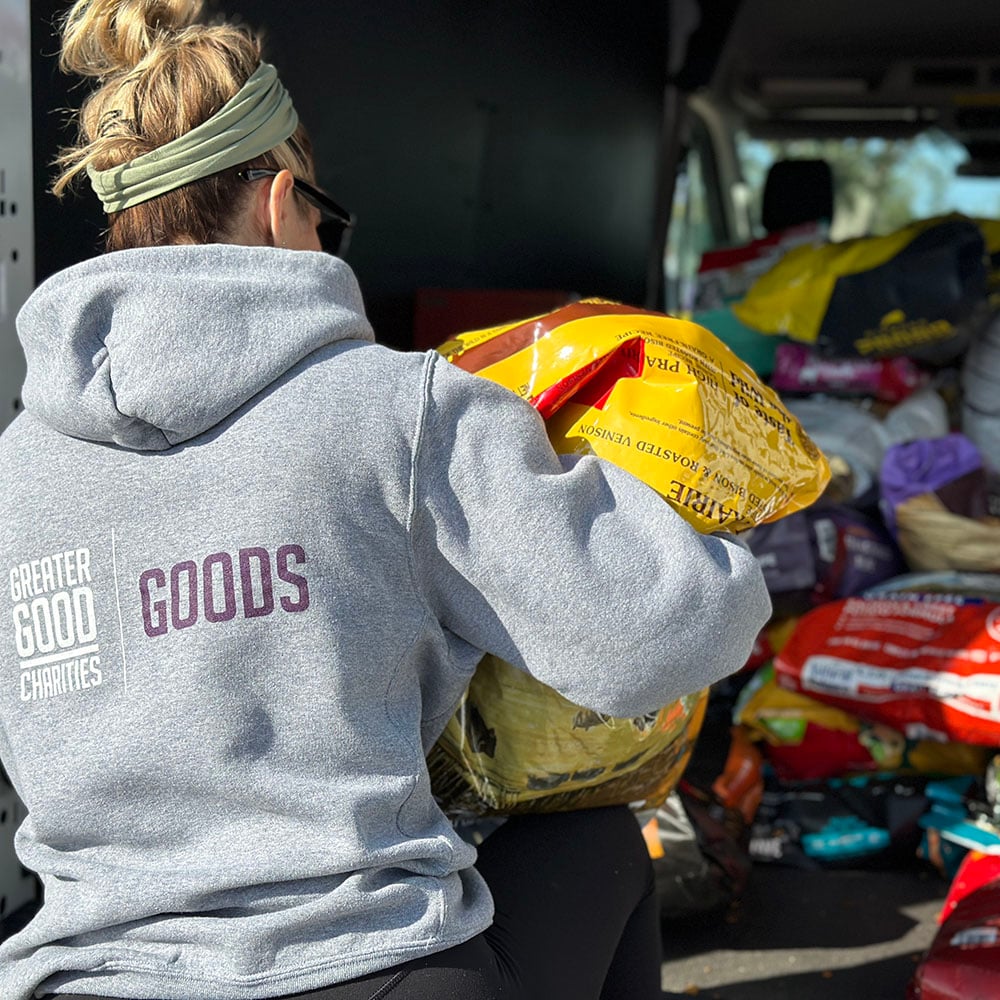
What are the Ambassador criteria?
- Be a non-profit 501©3 organization (with or without a municipal contract) in good standing and/or a state/local governmental agency.
- Have been in existence for at least two fiscal years, with two years of nonprofit status in good standing with the IRS at an operating level over $100,000 per year. All 990s must be up to date and available for review.
- Demonstrate financial responsibility and capabilities for record keeping and timely reporting.
- Agree to the terms and conditions of the Ambassador Agreement, including compliance with our operating procedures and reporting requirements.
- Using the guidelines provided by the GOODS Program, properly identify, screen, and manage Recipients before supplying resources to them.
- Screen online after distributions for resellers at a frequency of once per truckload.
- Must be able to operate the program without interruption through use of reliable volunteers and/or staff. Have convenient hours available to receive trucks and distribute to Recipients.
- Have a social media presence and/or website with quality photos and storytelling. Strong social media presence and following with ability to use a website or social media to drive traffic to their food assistance programming.
- Operate progressive community programming with a collaborative spirit and record of success. Examples may include spay/neuter, humane education, shelter intervention and foster. Greater Good Charities is committed to promoting our Ambassadors.
An Ambassador organization will need to have:
- Warehouse space that is suitable for receiving, storing, and redistributing at least 40 pallets of pet food and/or supplies.
- Equipment and staff/volunteers to unload a truck within two hours – a forklift or loading dock is required. A pallet jack is suggested. Full truckloads do not come with a liftgate.
- A website and social media pages on which the Greater Good Charities’ partnership is represented.
Are there costs associated with becoming an Ambassador Distributor?
The GOODS Program does not charge an Ambassador membership dues, but Ambassadors are charged a handling fee for each truckload they accept. This is to cover the freight for shipments to the Ambassador’s warehouse. In turn, Ambassadors charge a handling fee to their Recipients and may retain a portion of these fees to meet their local expenses.
The GOODS Program distribution typically does not generate extra income for the Ambassador. However, the portion of the handling fee retained by the Ambassador can often meet their expenses such as the rental of a warehouse.
Do Recipients pay any fees?
Yes, a small handling fee based on the national foodbank model. The food is donated but freight, warehousing and program services are not. Recipients pay a small fee that helps the Ambassador and the GOODS Program meet their expenses. Outside sponsors contribute the rest.
The fee is a maximum allowable charge to the Recipient. An Ambassador may reduce the fee charged to the Recipient, except that the Ambassador must still pay the GOODS Program its portion.
There are cases where a fee is reduced or not charged, such as:
- Disaster response
- Law enforcement actions such as cruelty or hoarding cases
- Distributions where the sponsor pays the freight and handling
How do I obtain food and/or products?
Please use the map to find the Ambassador nearest you. Click on their pin to be taken to their website to apply.
Back to top↑

